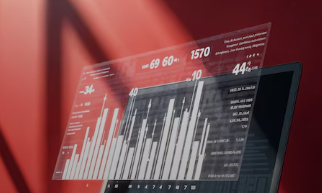Article by Clyde Shuman
The U.S. Supreme Court ruled yesterday that a copyright owner cannot file an infringement lawsuit until the Copyright Office has registered the work at issue. The ruling, in Fourth Estate Public Benefit Corp. v. Wall-Street.com LLC et al., case number 17-571, resolves a long-standing disagreement among the circuits.
In a unanimous ruling written by Justice Ginsburg, the Court said that the Copyright Act’s requirement that a ‘United States work’ be “registered” before a lawsuit is filed means the agency has actually taken action, not that paperwork has merely been submitted. However, once registration occurs, a copyright owner can recover for infringement that occurred both before and after registration.
The Court noted that, in limited circumstances, copyright owners may file an infringement suit before undertaking registration. For example, a copyright owner who is preparing to distribute a work of a type vulnerable to pre-distribution infringement (e.g., a movie or musical composition) may apply for preregistration under 17 U.S.C. §408(f)(2). A copyright owner may also sue for infringement of a live broadcast before “registration . . . has been made,” under §411(c). However, apart for limited statutory exceptions (not applicable here), §411(a) of the Copyright Act bars a copyright owner from suing for infringement until “registration . . . has been made.”
The Court rejected Fourth Estate’s “application approach,” that registration occurs when a copyright owner submits a proper application for registration. Rather, per the Court, the only satisfactory reading of §411(a)’s text requires that registration occurs only when the Copyright Office grants registration of a copyright. Specifically, if merely applying for a copyright registration were sufficient, other language in §411(a) (e.g., permitting a copyright claimant to file suit when the Register has refused her application) would be superfluous. Furthermore, the Court noted that Section 410(d) provides that if the Copyright Office registers a claim, or if a court later determines that a refused claim was registrable, the “effective date of [the work’s] copyright registration is the day on which” the copyright owner made a proper submission to the Copyright Office. There would be no need thus to specify the “effective date” if submission of the required materials qualified as “registration.”
The Court rejected Fourth Estate’s argument that delaying cases would hurt authors and artists, e.g., if the Copyright Act’s three-year statute of limitations runs out before the Copyright Office acts on her application for registration. Per the Court, ”Fourth Estate’s fear is overstated, as the average processing time for registration applications is currently seven months, leaving ample time to sue after the Register’s decision.” Additionally, as the Court pointed out, in addition to the Act’s provisions for preregistration suit, the Copyright Office allows copyright claimants to seek expedited processing of a claim for an additional $800 fee. See U. S. Copyright Office, Special Handling: Circular No. 10, pp. 1–2 (2017). The Copyright Office grants requests for special handling in situations involving, inter alia, “[p]ending or prospective litigation,” and “make[s] every attempt to examine the application . . . within five working days.” Compendium of U. S. Copyright Practices §623.2, 623.4 (3d ed. 2017).Interestingly, outside the scope of the Court’s decision is that some limited types of works are exempted from the registration prerequisite for an infringement lawsuit. The registration pre-requisite only applies to a ‘United States Work’ under §411(a). For example, a work is not a ‘United States work’, and thus free from the registration prerequisite, if it has not been published (i.e., has not been distributed to the public) and at least one of its authors is a foreigner.
In a second copyright ruling yesterday, the Court unanimously held that a Copyright Act provision mandating award of “full costs” to a prevailing party does not authorize courts to go beyond the specific types of “costs” available in federal litigation, overturning an award of more than $12 million in litigation costs.
In Rimini Street Inc. et al. v. Oracle USA Inc., case number 17-1625, Oracle had prevailed in its copyright infringement suit against Rimini, winning more than $100 million. At issue on appeal was an award of $12 million in “nontaxable costs” spent by Oracle in the lawsuit. While costs available to a prevailing litigant (distinct from an award of attorneys’ fees) are governed by a portion of the United States code that specifically enumerates what is recoverable, the Copyright Act includes a separate provision that orders courts simply to award “full costs.”
On appeal, the Ninth Circuit held that, under “full costs,” Oracle was entitled to recover amounts spent for expert witness fees, jury consulting fees, e-discovery expenses, etc. The Supreme Court disagreed, ruling that the Copyright Act provision did not alter the set of costs that can be awarded. Per Justice Kavanaugh, who authored the Court’s opinion, “The word ‘full’ operates in the phrase ‘full costs’ just as it operates in other common phrases. A ‘full moon’ means the moon, not Mars. A ‘full breakfast’ means breakfast, not lunch. A ‘full season ticket plan’ means tickets, not hot dogs. So too, the term ‘full costs’ means costs, not other expenses.”



